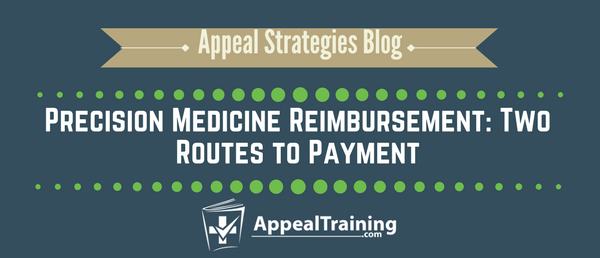Patients want personalized healthcare and healthcare organizations are looking for ways to provide it. However, the growth of medical options under the Precision Medicine category are being stalled by the ever present issues of reimbursement.
Among the most highly utilized, genetic tests that can identify patients with a higher risk for cancer are hugely popular and could serve as a key driver in behavior modification. The barrier, of course, is insurance coverage.
Eleven major US insurance companies covering more than 160 million lives told researchers that hereditary cancer panels (HCP) were a poor fit with coverage frameworks because the tests are deemed “experimental,” according to a study published in the Journal of the Comprehensive Cancer Network. Because HCPs include genes that are considered both well-studied and less studied, the entire test is classified as experimental.
FierceHeathcare reports that payers readily acknowledge the popularity of these tests among their consumers. In this age mailing in a strand of hair provides decades of genealogical history, it is nature to want to know what molecular clues exist to how we will age. However,the same study which surveyed insures on current coverage notes that just 18 percent of the insurance responders stated that reimbursement frameworks should be modified to accommodate coverage. Those responders against the increased coverage indicated there was insufficient evidence surrounding certain genetic tests and pointed to a lack of clinical utility among HCP test. See https://www.fiercehealthcare.com/payer/despite-promise-genetic-testing-payers-don-t-cover-cancer-screenings
Clinical utility is roughly defined as the ability of treatment option to prevent or ameliorate adverse health outcomes. Of course, any screening or diagnostic test alone
does not have inherent utility. Therefore, its clinical utility often is often expanded to look at what specific treatment can safely be pursued as a result of the findings and what the overall health impact looks like when approached with the enhanced information.
Despite reimbursement challenges, practices are under pressure to consider how to incorporate precision medicine into their treatment options and discuss coverage issues with patients. As this conversation broadens, your office may want to consider the following two options for keeping the reimbursement pressure on insurers to more quickly resolve access barriers:
Contract Negotiation
Yearly contract negotiation provides to opportunity to raise precision medicine reimbursement. Be prepared to this conversation with specific examples which tests your practices wants to utilize, the specific patient populations which would be targeted and what you see as the clinical utility, ie. how would this help you treat these patients more safely and/or more successfully.
Insures also need to know to what extend you see these tests as becoming the standard of care for certain patient groups. Provide any research which supports this position along with the growing evidence of public support for coverage.
The American Medical Association released a report last year detailing the need for insurer to be more transparent about coverage decision for genetic testing. The report also asks insurers to provide a better process for keeping up-to-date on advances in this area of medicine. The full report is available at the AMA website: https://www.ama-assn.org/ama-adopts-strategy-coverage-new-genetic-tests-therapeutics.
Also, inquire which of your payers plan to pursue accreditation specific to genetic medicine. The Utilization Review Accreditation Commission (URAC) has developed a draft of their Benefits Precision Medicine Accreditation Standards. This allows insurers to adopt a a framework of care with cost control features. Although still in development, these proposed standards may influences how reimbursement is expanded and also limited. Be sure and review the draft standards for an understanding of how insurers might approach coverage expansion. The draft standards are at https://www.urac.org/resource-center/public-comment/public-comment-period-opens-urac-genomics-precision-medicine-accreditation-standards-version-1-0/
Case-By-Case Coverage Requests
Getting a specific treatment approved on a case-be-case basis is time consuming. Often, multiple levels of appeal will be required and each submission will require extensive clinical documentation. However, these appeals are often effective.
The American Journal of Managed Care (AJMC) reported the successful appeal story of Tom Hall.Tom Hall had reached the end of of chemotherapy regimen and found that his metastatic lung cancer was spreading. He elected for genomic profile testing and, based on the results, his treatment team identified 5 off-label medicines which looked promising.
Medicare originally denied coverage because the drug would be used off-label. His doctor appealed but was unable to overturn the decision. Hall sought assistance from the Patient Advocate Foundation (PAF) who submitted an expedited appeal with documents showing the applicability of the off-label use based on his genetic profile. The appeal was successful and Tom finally obtained coverage for his new cancer treatment. See the full story at: www.ajmc.com/journals/evidence-based-oncology/2015/august-2015/the-need-to-eliminate-barriers-to-personalized-medicine
At Appeal Solutions, we have a number of appeal letters for seeking coverage of off-label drug treatment. However, these letters are most effective when the treatment physician demands a review by a medical professional qualified to review the denial and schedules a peer-to-peer conversation to discuss the clinical utility of the test for the particular patient.




Leave A Response